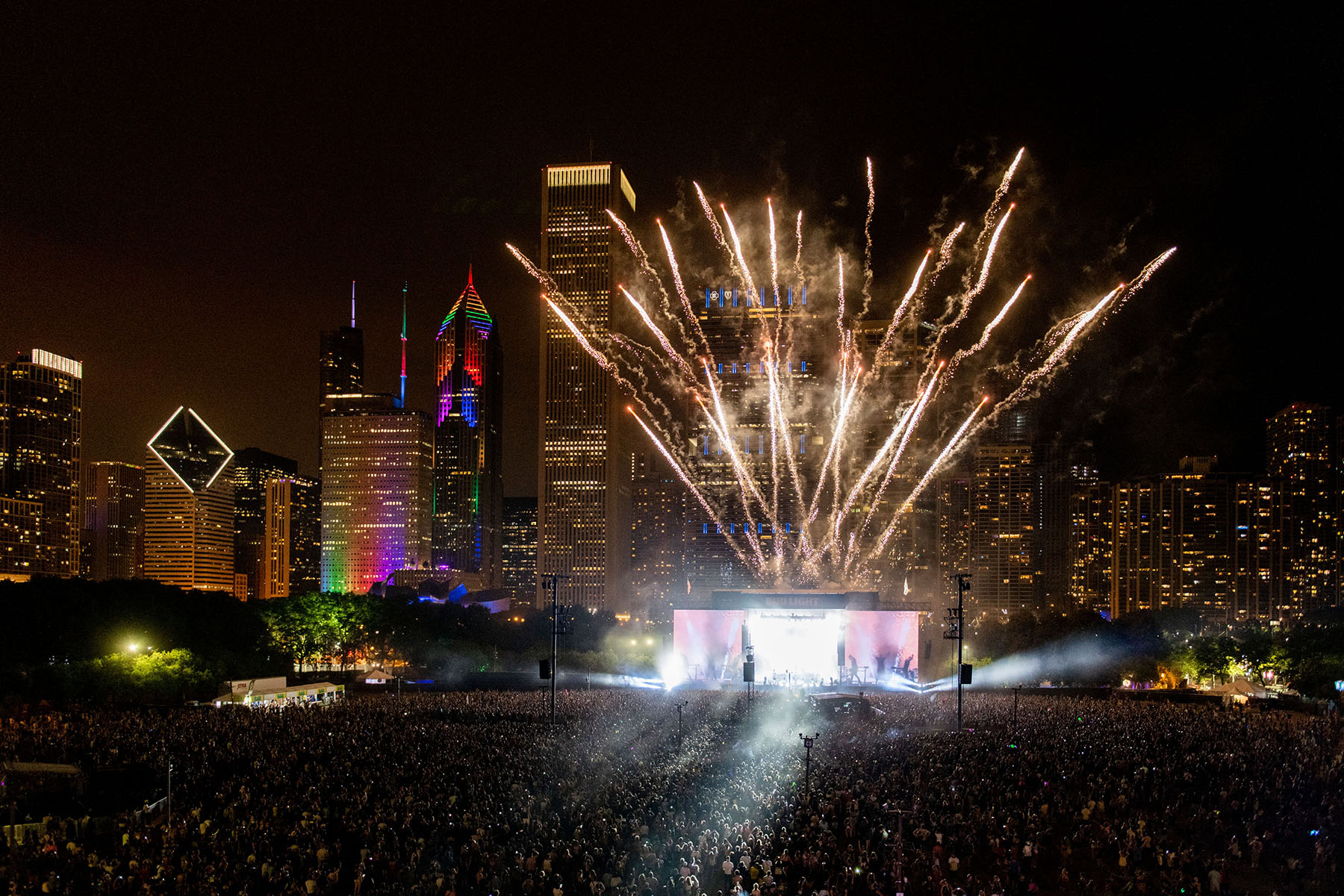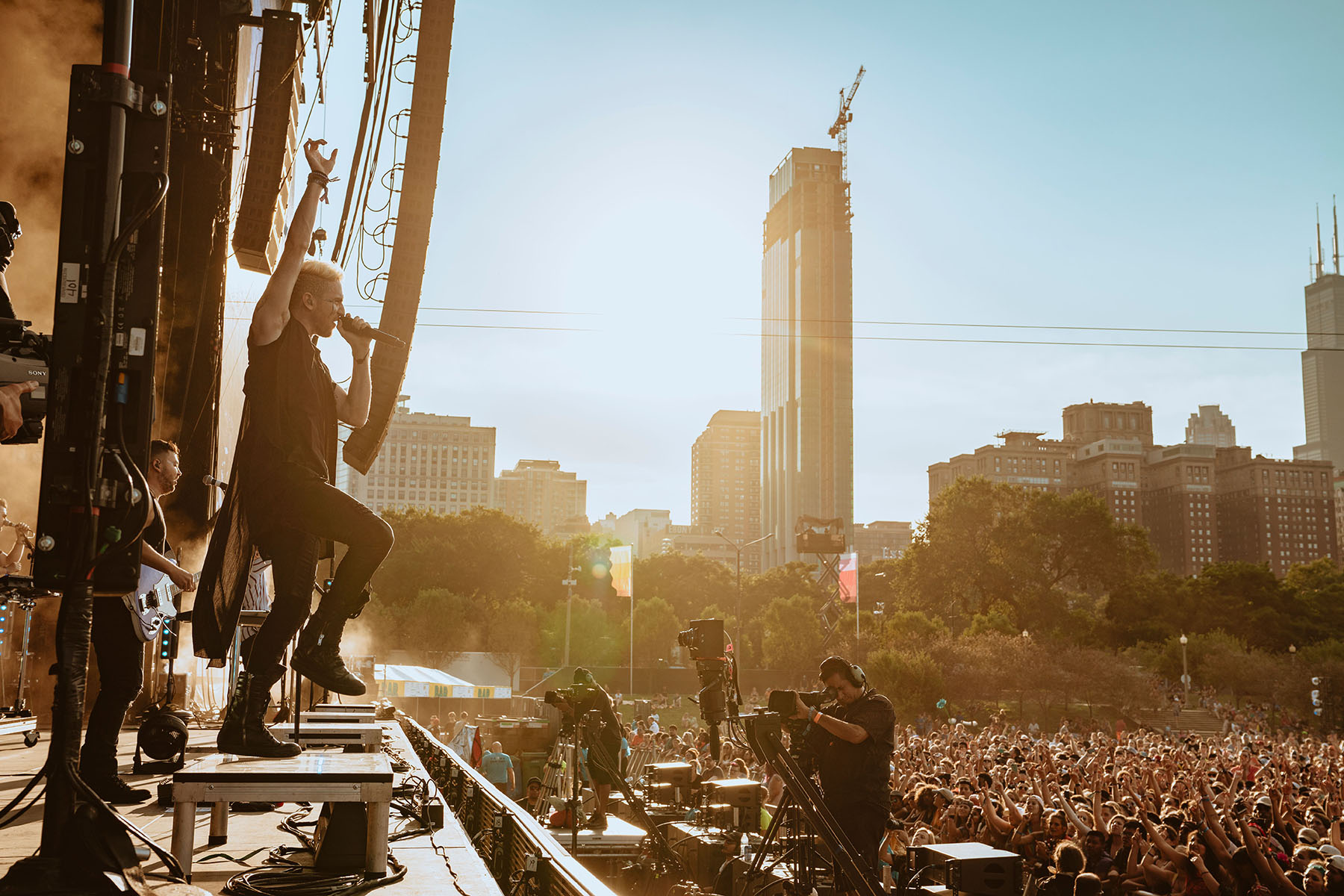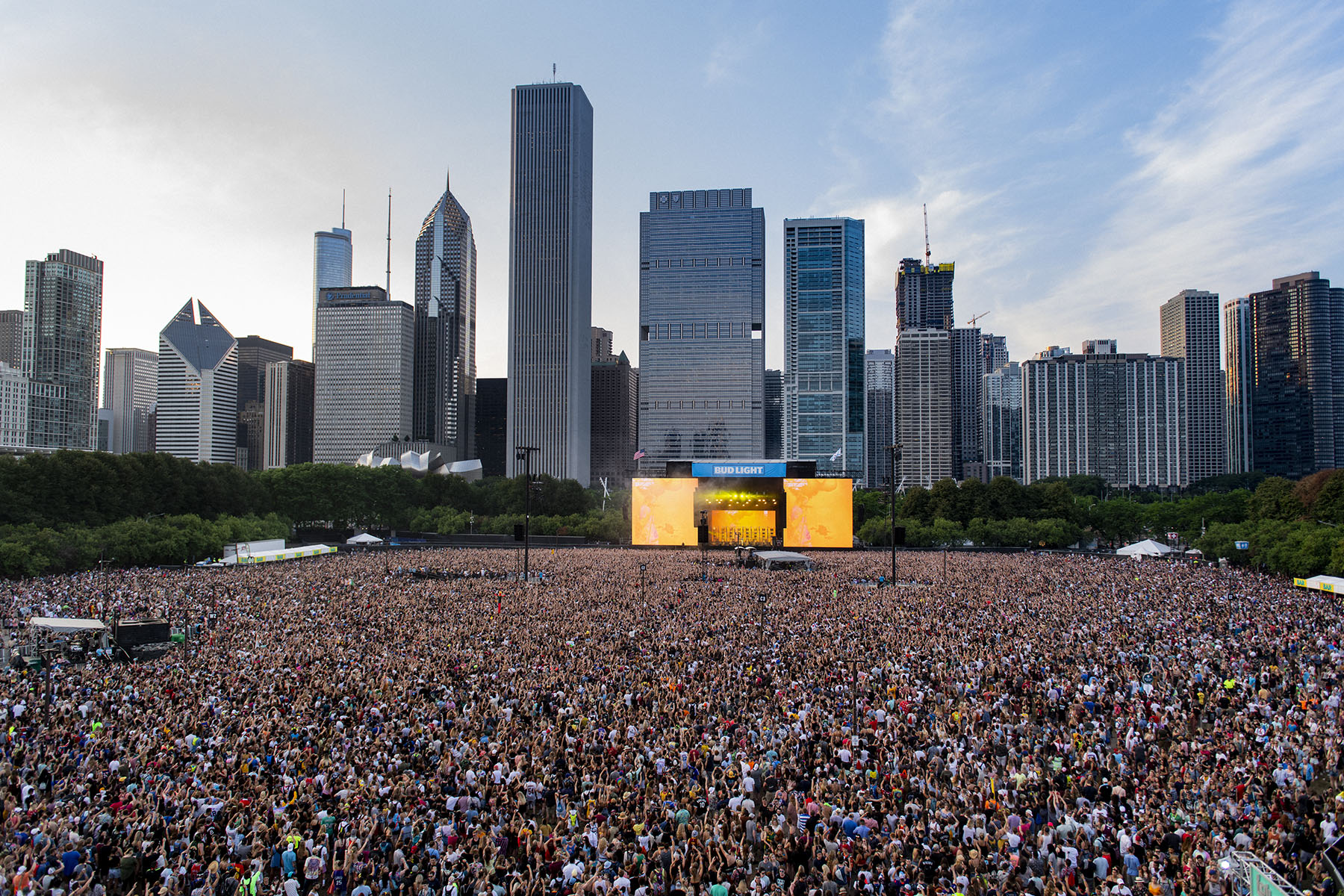From its early 1990s origins as a touring festival to its 2005 revival in Chicago, Lollapalooza has turned into a global festival phenomenon. The Chicago edition of Lollapalooza, annually held in Grant Park between the city’s skyline and shoreline, draws more than 400,000 music fans over four days each August to experience approximately 180 artists performing on eight stages. This year, crowds gathering at Lollapalooza’s two largest stages—the Grant Park Stage and Bud Light Stage—heard their favorite songs better than ever thanks to L-Acoustics K1/K2 loudspeaker systems.
The two L-Acoustics systems—used by Arctic Monkeys, Bruno Mars, The Weeknd, Jack White, Portugal. The Man, The National, Catfish and the Bottlemen, Vampire Weekend, ODESZA, and scores of others—were supplied and deployed by Houston-based L-Acoustics Certified Provider LD Systems, which is no stranger to huge productions. In addition to providing K1/K2-based sound reinforcement for three solid weeks of country and pop music’s top artists at RodeoHouston each March, the company also serves as the production provider for the two largest stages of the annual Austin City Limits (ACL) Music Festival.

Austin-based C3 Presents, paired with Live Nation, is the promoter behind both ACL and Lollapalooza. With LD Systems already providing audio and lighting packages for several of Lollapalooza’s secondary stages since 2013, in addition to its track record with ACL, LD systems director of production services Robert Ausmus said he was pleased to have the opportunity to bring even larger deployments of L-Acoustics gear to the two main stages of the Chicago festival.
“I’m a huge fan of the large-format K1 line source array,” said Ausmus. “Not only does it have high output and throw incredibly well, but it’s also an extremely articulate system. Our deployments at Lollapalooza this year reminded us of how amazing it is. To experience sound so present and rich at 500 feet out is absolutely mind-numbing. K1 is the only PA out there that I am aware of that can do that.”
Between the two stages, Lollapalooza this year featured an absolute “lollapalooza” of an audio setup. The system design that was deployed for the Grant Park Stage consisted of left and right main hangs of six K1-SB over 14 K1 over four K2, with eight K1-SB flown directly behind each of the two main arrays. Side hangs were comprised of eight K1 over four K2, and a total of 36 subs were deployed, configured with 24 KS28 in the center flanked by four SB28 per side in an arc sub configuration. For front fill, eight two-high Kara were arranged across the edge of the stage, while two rows of three arrays each featuring six K1 covered the depth of the field for delay.

The Bud Lite Stage, deployed by LD FOH systems tech Rafael Rosales, featured left and right hangs of four K1-SB over 14 K1 over four K2, also paired with eight K1-SB behind each of the two main arrays. Eight K2 per side served as the side hangs, and a total of 32 SB28 subs were utilized, configured in an arc sub configuration. Eight Kara front fills were also positioned across the edge of the stage, and a single row of three arrays of six K2 provided delay.
The systems were powered and processed by LA8 amplified controllers housed in LA-RAK touring racks, as well as LA12X-equipped LA-RAK II for the KS28 subs. A dozen self-powered 108P coaxials were additionally used as near-field monitors at FOH and as VIP area fills at both stage sites.
Regarding noise containment at Lolla Chicago, the LD Systems team appreciated the directivity and predictability that L-Acoustics provides. “Soundvision’s predictions are so accurate that it’s absolutely scary,” said Ausmus. “We try and keep low end, which is typically the main issue, on the festival grounds using good system design, especially the different flexible cardioid setups that the L-Acoustics system offers. Plus, L-Acoustics loudspeakers are great about only going where they’re pointed—and we can see that in Soundvision beforehand—so we don’t really have to worry much about spill.”
One of the other inherent advantages of K1/K2 is its rider acceptability. “We sent an audio overview out to all of the visiting artists to give them a sense of the systems and didn’t get a peep from anybody,” he said. “That’s the beauty of L-Acoustics. There are a lot of ‘weapons of choice’ out there, but nobody—and I mean nobody—will turn down K1 and K2. They know they’ll have a good day on it. We’ve used other PA systems in the past where there’s been some pushback from the artists, but we never get pushback with this system.”
“I was extremely impressed how the entire system performed,” said LD Systems’ Julian Gates, who was the principal systems design engineer and FOH systems engineer for the Grant Park Stage. “Even at the furthest distance from the stage, with the help of the two K1 delay rings we had the desired LF contour and bandwidth to provide the required SPL and still had plenty of headroom. In turn, we were additionally able to achieve within a 3 dB ‘A’ weighted variation over the field. The whole system was extremely consistent from front to back. I couldn’t be happier with the results we achieved with L-Acoustics.”
